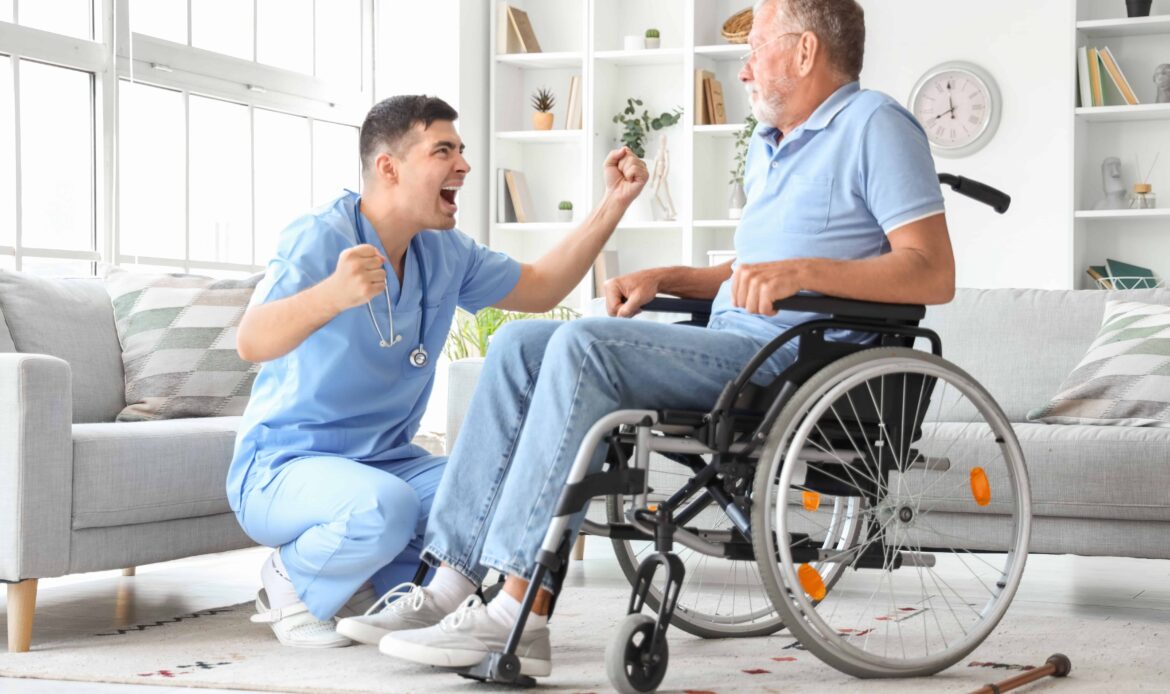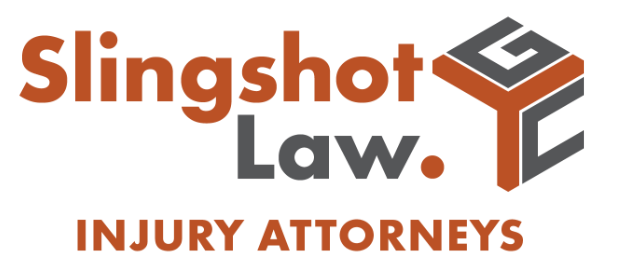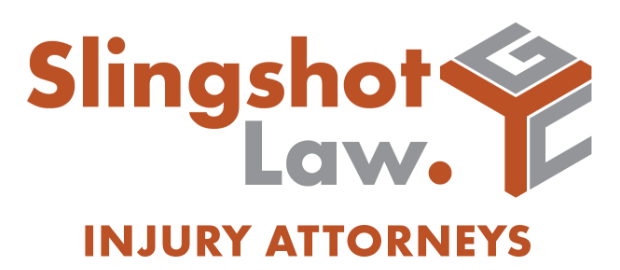Bruises, bedsores, and unexplained injuries in Mesa County nursing homes often reveal a pattern of neglect that families uncover too late. Across the Grand Valley, from care centers along Patterson Road to facilities near Community Hospital, residents suffer in silence while corporate operators protect profits. A Grand Junction nursing home abuse lawyer gives victims a voice, pursuing justice and holding negligent facilities accountable.
These cases require immediate investigation before evidence disappears, staff members transfer, and corporate lawyers control the narrative about what happened to your family member. Call Slingshot Law at (800) 488-7480 today to protect your loved one’s rights and hold negligent facilities accountable for the harm they’ve caused.
Key Takeaways About Grand Junction Nursing Home Abuse Cases
- Nursing home abuse includes physical violence, emotional cruelty, financial exploitation, and neglectful care that violates state and federal regulations.
- Colorado law mandates specific staffing ratios and care standards that facilities frequently violate to maximize profits.
- Signs of abuse often remain hidden until serious injuries or rapid health declines force families to investigate their loved one’s treatment.
- Multiple parties may bear liability including facility owners, management companies, and individual staff members who harmed residents.
- State regulatory violations and Medicare/Medicaid fraud often accompany abuse, creating additional legal remedies beyond personal injury claims.
Experienced Grand Junction Nursing Home Abuse Attorneys Protecting Seniors

Attorneys Drew Gibbs and Scott Crivelli bring extensive experience to nursing home abuse cases throughout Grand Junction. Together, they have achieved a strong record of positive results for families whose loved ones suffered neglect, injury, or wrongful death due to the negligence of others.
Drew Gibbs gained valuable insight during his years working within insurance companies, where he learned how nursing homes and their insurers may attempt to conceal abuse through altered records, staff transfers, and intimidation. He now applies that knowledge to expose these tactics and reveal systemic failures that harm residents.
Scott Crivelli, a former military JAG officer who prosecuted abuse within institutional settings, understands how organizations can hide misconduct behind bureaucracy and silence. His experience helps identify patterns of neglect that facilities often attempt to portray as isolated incidents.
Together, Gibbs and Crivelli combine investigative precision with compassionate advocacy to hold negligent nursing homes accountable and pursue justice for Colorado’s seniors.
Investigating Hidden Nursing Home Abuse in Grand Junction Facilities
Abuse in nursing homes often remains hidden because residents are too afraid or unable to report it. Slingshot Law investigates thoroughly, interviewing former employees, reviewing staffing records, and analyzing injury patterns that expose neglect.
Your Grand Junction nursing home abuse attorney also examines state inspection reports, payroll data, and Medicare billing to uncover fraudulent or unsafe practices. When available, surveillance footage and internal records provide clear evidence that contradicts official reports and proves systemic abuse.
Holding Grand Junction Nursing Homes Accountable for Abuse
Corporate nursing home chains in Grand Junction often value profits over resident safety. They rely on lawyers to defend the company instead of preventing harm.
At Slingshot Law, our Grand Junction personal injury lawyers make neglect and abuse too expensive to ignore. We pursue every responsible party, including administrators who ignored safety for profit.
By breaking through corporate defenses, we hold them fully accountable so no facility can treat your loved one’s pain as a routine business cost.
Understanding Nursing Home Abuse Under Colorado Law

Colorado statutes and federal regulations establish comprehensive frameworks protecting nursing home residents from abuse, neglect, and exploitation. These laws create specific duties facilities must meet and provide legal remedies when violations harm residents.
Types of Actionable Nursing Home Abuse
Physical abuse in Grand Junction nursing homes ranges from rough handling during transfers to deliberate violence against residents who complain or resist care.
Staff members frustrated by understaffing and difficult working conditions sometimes take frustrations out on vulnerable residents through unnecessary force, improper restraints, or medication administered for staff convenience rather than medical necessity. Neglect constitutes the most common form of nursing home abuse, occurring when facilities fail to provide basic care required by law and human decency.
Residents develop severe bedsores from remaining in soiled bedding, suffer falls due to inadequate supervision, or experience rapid weight loss from missed meals and dehydration. Medical neglect includes missed medications, ignored symptoms, and delayed treatment that allows treatable conditions to become life-threatening.
Colorado and Federal Nursing Home Regulations for Resident Protection
The Colorado Department of Public Health and Environment enforces state regulations requiring specific care standards, staffing levels, and resident rights protections. Federal regulations through the Centers for Medicare & Medicaid Services add additional requirements for facilities accepting Medicare or Medicaid funding.
These regulations mandate dignity, respect, and freedom from abuse for every resident regardless of payment source or medical condition. Facilities must maintain sufficient staffing to meet resident needs, conduct background checks on employees, and report suspected abuse to authorities immediately. Violations create presumptions of negligence that strengthen civil liability claims.
Warning Signs of Nursing Home Abuse in Mesa County Facilities
Families often miss early abuse indicators, attributing changes to natural aging or medical conditions rather than recognizing mistreatment patterns. Understanding these warning signs helps protect loved ones before abuse escalates.
Physical Indicators of Abuse or Neglect
Unexplained injuries provide the most obvious abuse evidence, yet facilities often offer plausible explanations that families initially accept. Bruising in unusual patterns or locations, fractures without witnessed falls, and cuts or abrasions inconsistent with normal activities all warrant investigation. Repeated injuries suggest ongoing abuse rather than isolated accidents.
Rapid physical decline signals potential neglect even without visible injuries. Sudden weight loss, dehydration symptoms, worsening bedsores, or untreated infections indicate failures in basic care. Poor hygiene, soiled clothing, and unkempt appearance reflect staffing problems or deliberate neglect of residents deemed “difficult.”
Multiple physical warning signs often appear simultaneously in abused nursing home residents:
- Unexplained bruising on arms, torsos, or faces suggesting rough handling
- Malnutrition and dehydration despite facility meal programs
- Untreated bedsores progressing to dangerous infection stages
- Over-medication causing excessive drowsiness and confusion
- Poor hygiene including unwashed hair, body odor, and dirty fingernails
These physical manifestations represent systemic care failures rather than unavoidable aging processes, particularly when multiple residents exhibit similar symptoms.
Emotional and Behavioral Signs of Nursing Home Abuse
Personality changes in nursing home residents often indicate emotional abuse or trauma from mistreatment. Previously social residents becoming withdrawn, fearful reactions to certain staff members, or reluctance to speak freely during visits suggest intimidation or retaliation. Depression, anxiety, and sudden cognitive decline may result from abuse rather than underlying medical conditions.
Residents sometimes communicate abuse indirectly through seemingly confused statements about being hurt, requests to leave immediately, or reports that families dismiss as dementia-related confusion. Staff members discouraging private visits, hovering during family interactions, or insisting residents are “confused” when reporting problems often signal attempts to hide ongoing abuse.
Common Nursing Home Abuse Situations in Grand Junction Facilities

Mesa County’s aging population and limited facility options create conditions where abuse flourishes unless families remain vigilant and facilities face accountability.
How Understaffing Leads to Nursing Home Abuse in Grand Junction
Chronic understaffing plagues nursing homes throughout Grand Junction as facilities minimize labor costs to maximize profits. Certified nursing assistants responsible for too many residents cannot provide adequate care despite best intentions. Meals get skipped, call buttons go unanswered, and residents sit in soiled garments for hours.
Overwhelmed staff members sometimes resort to chemical or physical restraints to manage workloads, medicating residents for compliance rather than medical necessity. Exhausted caregivers make medication errors, forget crucial treatments, or roughly handle residents while rushing through impossible task lists. Management knows about dangerous understaffing but maintains skeleton crews to protect profit margins.
Financial Exploitation of Vulnerable Residents
Nursing home staff members with access to residents’ personal information sometimes exploit their positions for financial gain. They steal cash from rooms, use credit cards for personal purchases, or coerce residents into changing beneficiary designations. Facilities may also commit financial abuse through fraudulent billing, charging for services never provided or upgrading care levels without justification.
Families discover financial exploitation through unexpected account activity, missing valuables, or suspicious financial documents appearing among residents’ belongings. Cognitive impairment makes many residents perfect targets for exploitation, as they cannot track finances or may not remember theft occurring.
Sexual Abuse in Grand Junction Nursing Homes
Sexual abuse represents the most underreported form of nursing home mistreatment, with vulnerable residents unable or afraid to report assaults. Predators seek employment at facilities specifically to access victims, while inadequate background checks and supervision enable abuse.
Resident-on-resident sexual abuse occurs when facilities fail to properly assess and separate individuals with histories of sexual aggression. Warning signs include genital injuries, new sexually transmitted infections, torn or bloody undergarments, and trauma responses during personal care.
Facilities often dismiss reports as confusion or fail to investigate thoroughly, prioritizing reputation management over resident protection.
Building Your Nursing Home Abuse Case
Successfully holding facilities accountable requires strategic evidence gathering and understanding of complex regulations governing nursing home operations.
Documentation and Evidence Collection
Start documenting concerns immediately upon suspecting abuse, photographing injuries, recording dates of incidents, and maintaining detailed visit notes. Request complete medical records including nursing notes, incident reports, and medication administration records.
Facilities often resist providing complete documentation, requiring persistent demands or legal intervention. Gather evidence from multiple sources to build comprehensive abuse pictures.
Interview other residents who may have witnessed mistreatment, contact former employees willing to discuss facility problems, and obtain state inspection reports showing violation patterns. Social media posts by staff members sometimes reveal facility conditions or attitudes toward residents.
State and federal databases provide valuable evidence for nursing home abuse cases:
- Medicare’s Nursing Home Compare showing quality ratings and violations
- Colorado Department of Health inspection reports and complaint investigations
- Staff turnover rates indicating systemic facility problems
- Financial records revealing corporate priorities over resident care
- Criminal background check failures for abusive employees
This public information combined with facility-specific evidence creates powerful cases that facilities cannot easily dismiss or minimize.
Working with Regulatory Agencies
Report suspected abuse to Colorado’s Adult Protective Services and the Department of Health immediately. These agencies investigate allegations, potentially supporting civil cases with official findings. Long-term care ombudsmen provide additional advocacy and investigation resources for nursing home residents.
Coordinate with criminal prosecutors when abuse involves assault, theft, or sexual crimes. Criminal convictions strengthen civil cases significantly, though civil litigation proceeds independently. Regulatory violations documented by state agencies establish negligence per se, simplifying liability proof in subsequent lawsuits.
FAQs for Grand Junction Nursing Home Abuse Lawyers
What types of compensation are available in nursing home abuse cases?
Victims may recover medical expenses, pain and suffering, emotional distress damages, and punitive damages for egregious conduct. Wrongful death claims include funeral expenses and family members’ losses. Regulatory fines and criminal restitution provide additional accountability.
Can nursing homes retaliate against residents who report abuse?
Federal and state laws prohibit retaliation against residents reporting abuse or cooperating with investigations. Facilities attempting retaliation face severe penalties including loss of licenses and Medicare/Medicaid eligibility. Document any changes in treatment following complaints.
How long do I have to file a nursing home abuse lawsuit?
Colorado provides two years from injury discovery for most nursing home abuse claims. Wrongful death cases have two years from death. Some circumstances extend deadlines, but acting quickly preserves evidence and protects rights.
What if the facility claims my loved one’s dementia makes abuse reports unreliable?
Physical evidence, witness testimony, and pattern documentation support abuse claims regardless of cognitive status. Facilities often blame dementia to discredit abuse reports. Experienced Grand Junction nursing home abuse lawyers know how to prove abuse despite victim vulnerability.
Who can be held liable for nursing home abuse?
Potentially liable parties include individual abusers, facility administrators, corporate owners, management companies, and medical directors. Each defendant may carry separate insurance providing multiple compensation sources.
Contact a Grand Junction Nursing Home Abuse Lawyer for Help

Unexplained injuries, sudden health declines, or fearful behavior may signal serious abuse that nursing home administrators hope families never uncover. While these facilities use corporate lawyers and insurers to protect profits, your loved one suffers without a voice.
Our Grand Junction nursing home abuse lawyers at Slingshot Law stand up for victims and families across Mesa County. We know how to expose corporate cover-ups, challenge negligent care practices, and hold every responsible party accountable under the law.
If you suspect abuse or neglect, don’t wait. Call (800) 488-7480 to speak with a Grand Junction nursing home abuse lawyer and take the first step toward protecting your loved one and stopping further harm.
Grand Junction Office
Address: 734 Main Street, Grand Junction, CO 81501
Phone: (800) 488-7480

